Filter by
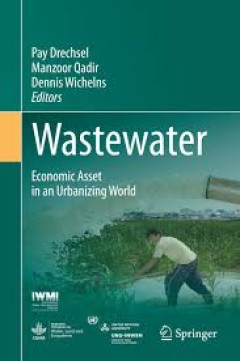
Wastewater Economic Asset in an Urbanizing World
The books provides a timely analysis in support of a paradigm shift in the field of wastewater management, from ‘treatment for disposal’ to ‘treatment for reuse’ by offering a variety of value propositions for water, nutrient and energy recovery which can support cost savings, cost recovery, and profits, in a sector that traditionally relies on public funding. The book provides new insi…
- Edition
- -
- ISBN/ISSN
- 978-94-017-9545-6
- Collation
- -
- Series Title
- -
- Call Number
- -

Life Cycle Impact Assessment
This book offers a detailed presentation of the principles and practice of life cycle impact assessment. As a volume of the LCA compendium, the book is structured according to the LCIA framework developed by the International Organisation for Standardisation (ISO)passing through the phases of definition or selection of impact categories, category indicators and characterisation models (Classifi…
- Edition
- 1
- ISBN/ISSN
- 978-94-017-9744-3
- Collation
- Air Industri
- Series Title
- -
- Call Number
- 551.23

Uranium - Past and Future Challenges Proceedings of the 7th International Co…
This book is the collection of papers from the latest International Uranium Mining and Hydrogeology Conference (UMH VII) held in September 2014, in Freiberg, Germany. It is divided to five sessions: Uranium Mining, Uranium and Phosphates, Clean-up technologies for water and soil. Uranium and daughter nuclides and basic research and modeling. Each session covers a wide range of related topic and…
- Edition
- -
- ISBN/ISSN
- 978-3-319-11059-2
- Collation
- -
- Series Title
- -
- Call Number
- -

Oceanography and Marine Biology An Annual Review, Volume 60
Oceanography and Marine Biology: An Annual Review remains one of the most cited sources in marine science and oceanography. The ever-increasing interest in work in oceanography and marine biology and its relevance to global environmental issues, especially global climate change and its impacts, creates a demand for authoritative refereed reviews summarizing and synthesizing the results of both …
- Edition
- -
- ISBN/ISSN
- 9781003288602
- Collation
- -
- Series Title
- -
- Call Number
- -
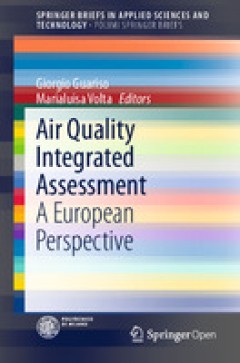
Air Quality Integrated Assessment: A European Perspective
air quality; air pollution; environmental analysis
- Edition
- -
- ISBN/ISSN
- 9783319333496
- Collation
- -
- Series Title
- -
- Call Number
- -
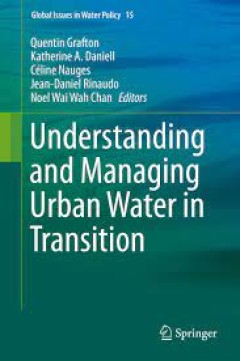
Understanding and Managing Urban Water in Transition
This book examines changes and transitions in the way water is managed in urban environments. This book originated from a joint French-Australian initiative on water and land management held in Montpellier, France. The book delivers practical insights into urban water management. It links scientific insights of researchers with the practical experiences of urban water practitioners to understan…
- Edition
- -
- ISBN/ISSN
- 978-94-017-9801-3
- Collation
- -
- Series Title
- -
- Call Number
- -

Arsenic and Fluoride Contamination: A Pakistan Perspective
This book presents an up-to-the-minute overview of arsenic and fluoride pollution of soil and groundwater in Pakistan. It includes the author’s doctoral dissertation on Lahore as a case study and describes the mechanism of pollution on the basis of the findings in that area. The book highlights the concrete situation in Pakistan – including the severity of the problem, its health effects an…
- Edition
- Ed. 1
- ISBN/ISSN
- 978-81-322-2298-9
- Collation
- XI, 147
- Series Title
- -
- Call Number
- 553.79 FAR a

Transnational Japan in the Global Environmental Movement
What motivates people to become involved in issues and struggles beyond their own borders? How are activists changed and movements transformed when they reach out to others a world away? This adept study addresses these questions by tying together local, national, regional, and global historical narratives surrounding the contemporary Japanese environmental movement. Spanning the era of Japanes…
- Edition
- -
- ISBN/ISSN
- 9780824879730
- Collation
- -
- Series Title
- -
- Call Number
- -
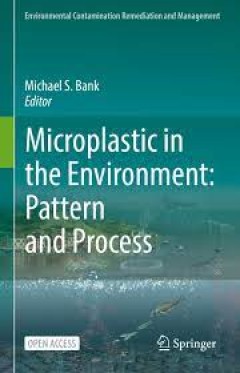
Microplastic in the Environment: Pattern and Process
This open access book examines global plastic pollution, an issue that has become a critical societal challenge with implications for environmental and public health. This volume provides a comprehensive, holistic analysis on the plastic cycle and its subsequent effects on biota, food security, and human exposure. Importantly, global environmental change and its associated, systems-level proces…
- Edition
- -
- ISBN/ISSN
- 9783030786274
- Collation
- -
- Series Title
- -
- Call Number
- -
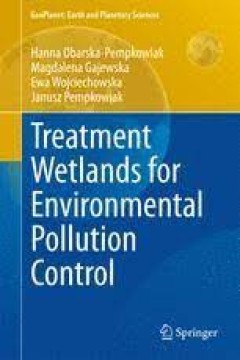
Treatment Wetlands for Environmental Pollution Control
The aim of this book is to present an overview of the state of the art with regard to the function, application and design of TWSs in order to better protect surface water from contamination. Accordingly, it also presents applications of constructed wetlands with regard to climatic and cultural aspects. The use of artificial and natural treatment wetland systems (TWSs) for wastewater treatme…
- Edition
- -
- ISBN/ISSN
- 978-3-319-13794-0
- Collation
- -
- Series Title
- -
- Call Number
- -
 Computer Science, Information & General Works
Computer Science, Information & General Works  Philosophy & Psychology
Philosophy & Psychology  Religion
Religion  Social Sciences
Social Sciences  Language
Language  Pure Science
Pure Science  Applied Sciences
Applied Sciences  Art & Recreation
Art & Recreation  Literature
Literature  History & Geography
History & Geography